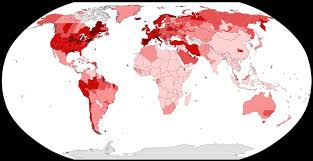Meet our community!
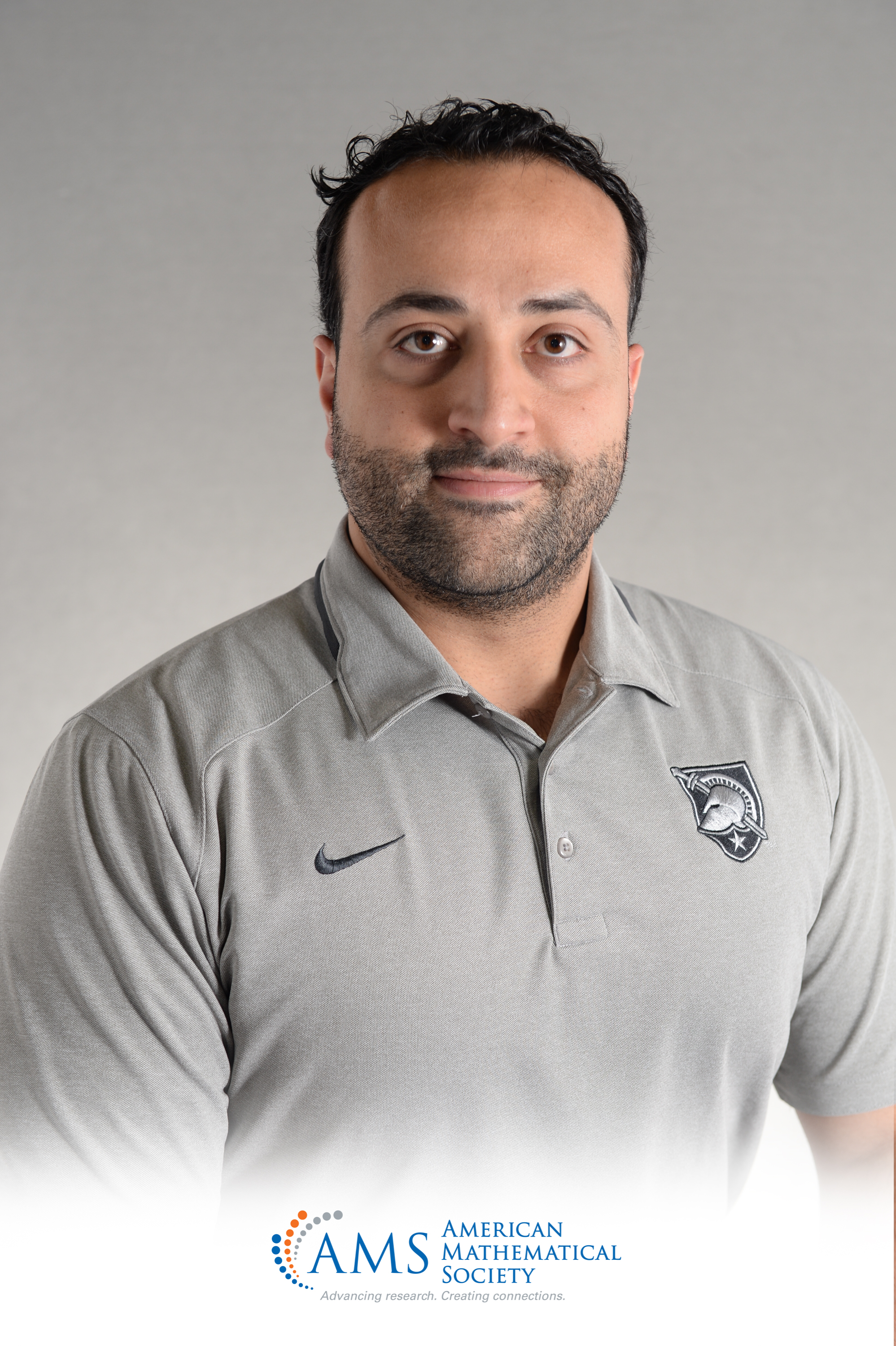
Dr. Elie Alhajjar
Elie Alhajjar is a research scientist at the Army Cyber Institute and a faculty member at the United States Military Academy in West Point NY, where he teaches and mentors cadets from all academic disciplines. Prior to joining USMA, he was a research scientist in the Computing and Communications Theory Group at the National Institute of Standards and Technology (NIST) in Gaithersburg, MD. His research work is supported by multiple grants and fellowships. He is a founding member of the Intelligent Cyber-Systems and Analytics Research Laboratory (ICSARL), where he works in the fields of network science and cybersecurity. Dr. Alhajjar holds a Master of Science and a Ph.D. in mathematics from George Mason University, as well as Master's and Bachelor's degrees from Notre Dame University.
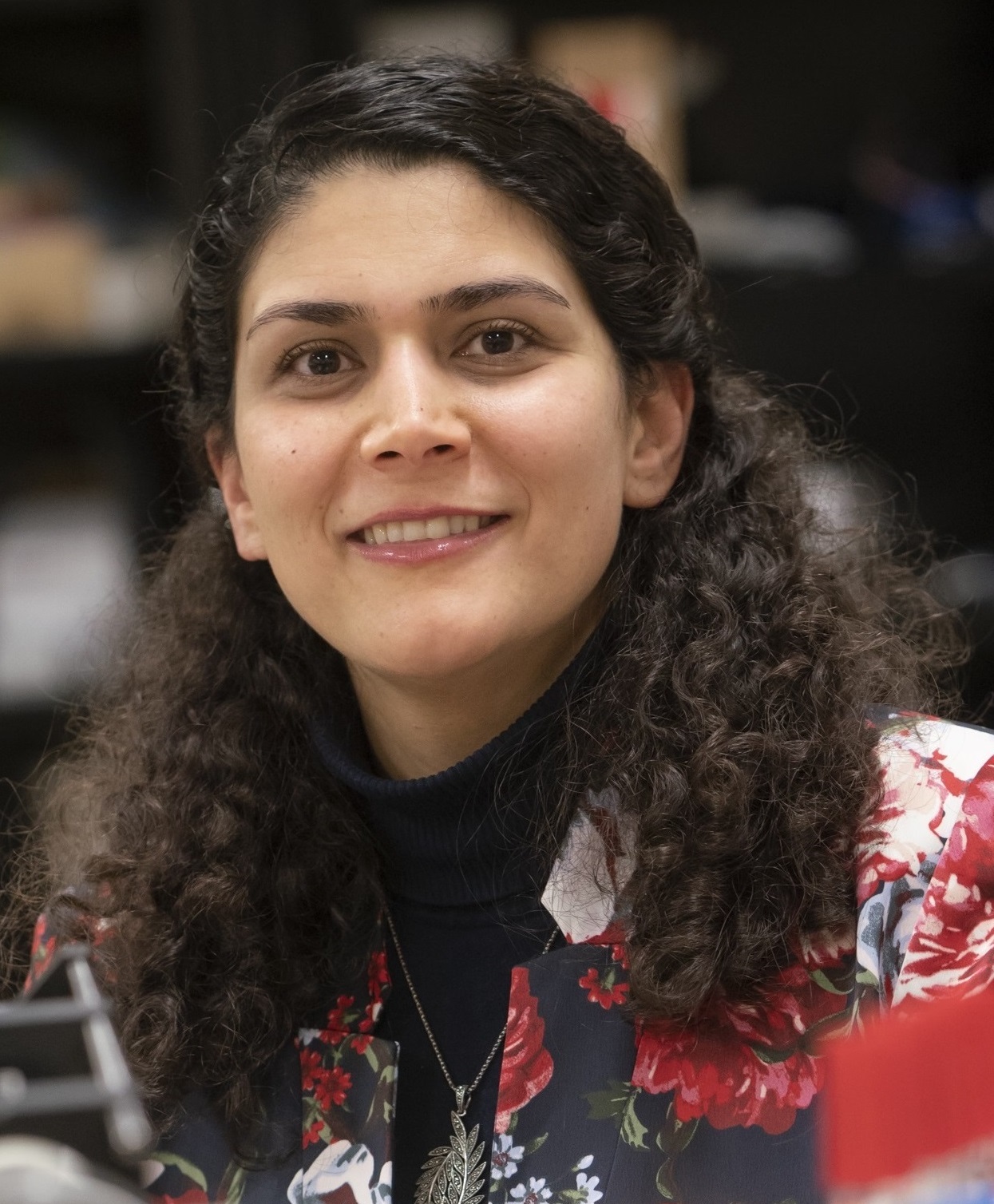
Dr. Arezoo Ardekani
Arezoo Ardekani is a Professor of Mechanical Engineering at Purdue University. Her research focuses on complex fluids, biological flows, suspensions of particles and cells. Honored with the Presidential Early Career Award for Scientists and Engineers (PECASE) from president Obama, Arezoo has also received an NSF CAREER Award, the Arthur B. Metzner Early Career Award from the Society of Rheology, the Society of Engineering Science Young Investigator Medal, the Sigma Xi Mid-career Research Award, and is named a Purdue University Faculty Scholar. A Fellow of ASME, Arezoo has also received the College of Engineering Faculty Excellence Awards for Graduate Student Mentorship and Early Career Research, the Schlumberger Foundation Faculty for the Future Award, the Amelia Earhart Award and the Society of Women Engineers Award. She received her PhD from University of California Irvine in 2009. Arezoo is an Associate Editor of ASME Applied Mechanics Review, an Editorial Advisory Board Member of International Journal of Multiphase Flow, Journal of Non-Newtonian Fluid Mechanics, Physics of Fluids and Physical Review Fluids and a member of the American Physical Society-Division of Fluid Dynamics Executive Committee.

Dr. Rashid Bashir
Rashid Bashir is currently the Dean of Grainger College of Engineering, the Grainger Distinguished Chair in Engineering, and Professor of Bioengineering at the University of Illinois at Urbana-Champaign. He was member of the core founding team and co-chair of the inaugural curriculum committee for the Carle-Illinois College of Medicine, the world's first engineering based College of Medicine at the University of Illinois at Urbana-Champaign. He has previously been at Purdue University and at National Semiconductor Corporation. He has held visiting Scientist position at Massachusetts General Hospital and Shriner's Hospital for Children, and Visiting Professor of Surgery at Harvard Medical School, Cambridge, MA. He was the recipient of the Joel and Spira teaching Award, the NSF Faculty Early Career Award and the IEEE EMBS Technical Achievement award. In 2018, he received the Pritzker Distinguished Lectureship Award from BMES. He has authored or co-authored over 250 journal papers and has been granted 50 patents. Technology from his group has been licensed to multiple startups and larger companies. His research group is interested in developing new diagnostic technologies for precision and personalized medicine, and in 3D bio-fabrication of cellular systems. Using bionanotechnology, BioMEMS, and lab on chip, he is working at the interface of biology and engineering from the molecular to the tissue scale, and aiming to make an impact on grand challenges in infectious disease, sepsis, cancer, and others.

Dr. Mario di Bernardo
Mario di Bernardo received the M.Sc. degree in electronic engineering from the University of Naples Federico II, Naples, Italy, in 1994, and the Ph.D. degrees in engineering mathematics from the University of Bristol, U.K., in 1998. He is currently a Professor of Automatic Control with the University of Naples Federico II, Naples, Italy. He is also Professor (part-time) of Nonlinear Systems and Control with the University of Bristol, U.K. His research interests include the analysis, synchronization, and control of complex network systems, piecewise-smooth dynamical systems, nonlinear dynamics and nonlinear control with applications to engineering and computational biology. He has authored or coauthored more than 250 international scientific publications, a research monograph, and two edited books. Dr. di Bernardo was elevated to the grade of Fellow of the IEEE for his contributions to the analysis, control, and applications of nonlinear systems, and complex networks, in January 2012. He was bestowed the title of "Cavaliere" of the Order of Merit of the Italian Republic for scientific merits from the President of Italy on February 28, 2007. From 2009 to 2017, he was President of the Italian Society for Chaos and Complexity. From 2011 to 2014, he was the Vice President for financial activities of the IEEE Circuits and Systems Society. In 2014, he was appointed as a member of the Board of Governors of the IEEE Control Systems Society. He was Distinguished Lecturer of the IEEE Circuits and Systems Society for the two-year term 2016-2017. He is Senior Editor for the IEEE Transactions on Control of Network Systems, and Associate Editor and member for the Steering Committee of the IEEE Control Systems Letters, the Conference Editorial Board of the IEEE Control System Society and the European Control Association (EUCA). He is regularly invited as Plenary Speaker in Italy and abroad.

Dr. Lydia Bourouiba
Physical applied mathematician focusing on problems at the interface of fluid dynamics and disease transmission with the aim of elucidating the fundamental physical mechanisms shaping the epidemiology and disease transmission dynamics in human, animal and plant populations. With a doctoral research focused on the theoretical and numerical study of rotating homogeneous turbulence and a subsequent postdoctoral research focused on the mathematical modeling of infectious diseases and epidemiology, the focus of the Bourouiba Group is to elucidate the poorly understood mechanisms of disease transmission through the lens of fluid dynamics. Prof. Bourouiba founded The Fluid Dynamics of Disease Transmission Laboratory at MIT in 2014, when she was appointed as Assistant Professor. Prof. Bourouiba was promoted to Associated Professor Without Tenure in 2019, and to Associate Professor With Tenure in 2020. In 2019, Prof. Bourouiba founded and chaired the inaugural Fluids and Health Conference: Fluid dynamics of disease transmission to foster the growth of this exciting frontier area of research beyond the Bourouiba Group and define the exciting key challenges at the interface of fluid dynamics and epidemiology/public health. In 2020, she then founded and will Chair the new Gordon Research Conference focused on Fluids and Health: Fluids in Disease Transmission and Contamination to be held in August 2022 to continue growing this critical frontier domain of research. Stay tuned and subscribe to the mailing list of the Fluids and Health Conference here or here for updates on this upcoming exciting new Gordon Research Conference on this frontier topic.
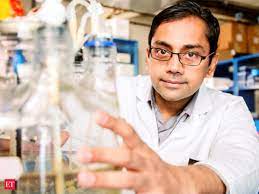
Dr. Kartik Chandran
Kartik Chandran is Professor of Environmental Engineering at Columbia University. Under his stewardship, the directions of biological wastewater treatment and biological nutrient removal were established at Columbia in 2005. Chandran's work focuses on "integrating microbial ecology, molecular biology, and engineering to transform wastewater from a troublesome pollutant to a valuable resource". Kartik is currently engaged in a global effort to characterize viral structure and function in wastewater treatment processes. He was also a member of a national Blue Ribbon Panel working on developing guidelines for water-sector professionals as related to the COVID-19 pandemic.

Dr. David Ebert
David S. Ebert is currently an Associate Vice President for Research and Partnerships, the Gallogly Chair Professor of electrical and computer engineering, and the Director of the Data Institute for Societal Challenges at the University of Oklahoma in Norman, OK, USA. He is the recipient of the 2017 IEE Computer Society vgTC Technical Achievement Award, member of the IEEE vgTC Visualization Academy, an adjunct Professor of electrical and computer engineering with Purdue University, and the Director of the Visual Analytics for Command Control and Interoperability Center (VACCINE), the Visualization Science team of the Department of Homeland Security's Visual Analytics and Data Analytics Emeritus Center of Excellence. He received the Ph.D. degree in computer and information science from The Ohio State University, Columbus, OH, USA and performs research in visual analytics, novel visualization techniques, interactive machine learning and explainable AI, human–computer teaming, advanced predictive analytics, and procedural abstraction of complex, massive data. He is an IEEE Fellow. Contact him at ebert@ou.edu.
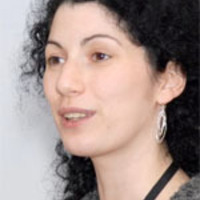
Dr. Nina Fefferman
Fefferman is the current Director of the National Institute for Mathematical and Biological Synthesis (NIMBioS) and the Associate Director of the One Health Initiative at the University of Tennessee, Knoxville, where she is also a Professor in both the Departments of Ecology & Evolutionary Biology and Mathematics. Her research uses mathematical modeling to explore the behavior, evolution, and control of complex systems with application in areas from basic science (evolutionary sociobiology and epidemiology) to deployable technology (bio-security, cyber-security, and wildlife conservation). Fefferman has been an active member of the Command, Control, and Interoperability Center for Advanced Data Analysis (CCICADA), a Department of Homeland Security Center of Excellence. She has served on scientific advisory panels/boards for the EPA, Mathematical Biosciences Institute (MBI), and Los Alamos National Laboratories and regularly consults to governmental agencies and private companies. Her work has been funded by NSF, NIH, DHS, DoD, USFWS, and USDA, among others. Fefferman is passionate about disease prevention and public health, and about communicating the utility and beauty of mathematics as a tool to make people's lives better.

Dr. James Moody
James Moody is the Robert O. Keohane professor of sociology at Duke University. He has published extensively in the field of social networks, methods, and social theory. His work has focused theoretically on the network foundations of social cohesion and diffusion, with a particular emphasis on building tools and methods for understanding dynamic social networks. He has used network models to help understand school racial segregation, adolescent health, disease spread, economic development, and the development of scientific disciplines. Moody's work is funded by the National Science Foundation, the National Institutes of Health and the Robert Wood Johnson Foundation and has appeared in top social science, health and medical journals. He is winner of INSNA's (International Network for Social Network Analysis) Freeman Award for scholarly contributions to network analysis, founding director of the Duke Network Analysis Center and editor of the on-line Journal of Social Structure
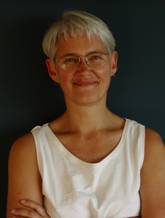
Dr. Martina Morris
My primary contribution to science has been in the field of statistical methods for network analysis, with applications to epidemic modeling and a primary focus on HIV transmission dynamics. For two decades I have co-led (with Drs. Mark S. Handcock and Steve Goodreau), the NIH-funded team that developed the Exponential family Random Graph Models (ERGMs) framework for statistical network analysis. This team developed and continues to maintain and extend statnet, an integrated suite of open-source software packages written in R that implements these methods. In recent years, with Dr. Sam Jenness, we extended this foundation to develop a comprehensive, principled framework for stochastic modeling of epidemics on dynamic networks. That work is now implemented in the open-source software package EpiModel. All of our software is hosted on GitHub, and supported by extensive online training materials and workshops that we teach annually in the US and Europe to researchers in a wide range of fields. My current research projects focus on using these methods to support local HIV prevention planning efforts - a progression from theoretical development to public health epidemiology. I am committed to the development of innovative statistical methodology that addresses critical needs in public health, to applications of these methods to support HIV prevention efforts, and to a transparent, reproducible science workflow, ensuring access to the methodology by creating open-source and user-friendly tools.

Dr. Yannis Paschalidis
Yannis Paschalidis is a Professor in the College of Engineering at Boston University with joint appointments in the Department of Electrical and Computer Engineering, the Division of Systems Engineering, and the Department of Biomedical Engineering. He is also a Founding Professor of Computing & Data Sciences. He is the Director of the Center for Information and Systems Engineering (CISE) - a Boston University research center with more than 40 affiliated faculty and $8 million of annual research expenditures. He is affiliated with the BioMolecular Engineering Research Center (BMERC), the Clinical & Translational Science Institute (CTSI), the Precision Diagnostics Center (PDC), the Rafik B. Hariri Institute for Computing and Computational Science & Engineering, the Initiative on Cities, and the Center for Systems Neuroscience. He completed his graduate education at the Massachusetts Institute of Technology (MIT) receiving an MS (1993) and a PhD (1996) degree, both in Electrical Engineering and Computer Science. In September 1996 he joined Boston University where he has been ever since. He has held visiting appointments with MIT and Columbia University.
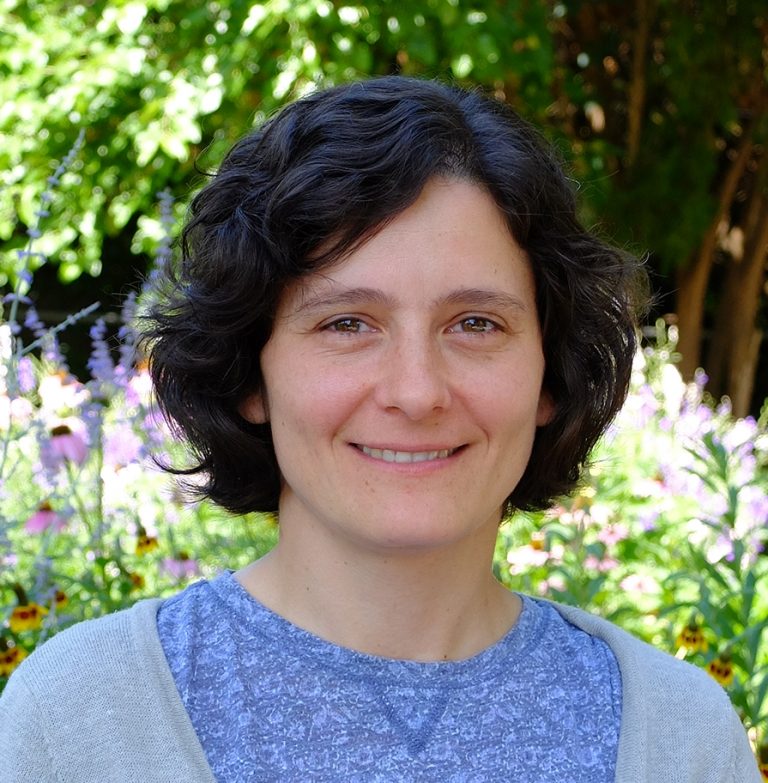
Dr. Mona Papes
My research includes theoretical and applied investigations centered on species' distributions. I am interested in the methodological aspects of estimating species' potential distributions and in the relevance of this approach to understanding anthropogenic effects on species' distributions. My projects combine ecological, evolutionary, and biodiversity conservation concepts.

Dr. Sadie J. Ryan
Sadie J. Ryan is an Associate Professor of Medical Geography in the Department of Geography and in the Emerging Pathogens Institute (EPI) at the University of Florida, PI of the Quantitative Disease Ecology and Conservation (QDEC) Lab group (www.sadieryan.net), and co-director of the UF Florida Climate Institute. Ryan's undergrad training is in Ecology and Evolutionary Biology (BA, Princeton), with an emphasis on conservation biology, quantitative ecology, and particularly, disease ecology. Ryan's PhD work (UC Berkeley) centered on African buffalo spatial ecology in their savanna environment, in the context of an epidemic of Bovine Tuberculosis. Ryan's postdoctoral work in Anthropological Science (Stanford, McGill), Ecology (NCEAS) and Geography (UCSB), launched her interdisciplinary work looking at the anthropogenic impacts of land use change, climate change, and conservation management goals in African parks landscapes, and the role of socioecological systems in disease transmission in Africa and Latin America. Ryan's research is funded through multiple avenues, including CDC, USAID, World Bank, NSF, NIH, and DoD, supporting theoretical to applied research and training, with current focus on climate and socioecological systems impacts on vector-borne disease transmission and management in Africa and the Americas. Ryan's team currently conducts research investigating the multiscale issues of health on landscapes, and interactions with land use and climate change, livelihoods, sustainability, policy, the urban environment, public health decision-making, and local perceptions. QDEC Lab is home to multiple projects in ecology at the human interface, from Florida to the global tropics.

Dr. Veenu Veeravalli
Venu Veeravalli received the Ph.D. degree in Electrical Engineering from the University of Illinois at Urbana-Champaign in 1992, the M.S. degree from Carnegie-Mellon University in 1987, and the B.Tech degree from Indian Institute of Technology, Bombay (Silver Medal Honors) in 1985. He is currently the Henry Magnuski Professor in the Department of Electrical and Computer Engineering (ECE) at the University of Illinois at Urbana-Champaign, where he also holds appointments with the Department of Statistics, the Coordinated Science Laboratory (CSL) and the Information Trust Institute (ITI). He was on the faculty of the School of ECE at Cornell University before he joined Illinois in 2000. He served as a program director for communications research at the U.S. National Science Foundation in Arlington, VA during 2003-2005. His research interests span the theoretical areas of statistical inference, machine learning, and information theory, with applications to data science, wireless communications, and cyberphysical systems. He is a Fellow of the IEEE. Among the awards he has received for research and teaching are the IEEE Browder J. Thompson Best Paper Award (1996), the U.S. Presidential Early Career Award for Scientists and Engineers (PECAS) (1999), and the Abraham Wald Prize in Sequential Analysis (2016). He served as a distinguished lecturer for the IEEE Signal Processing Society during 2010-2011.
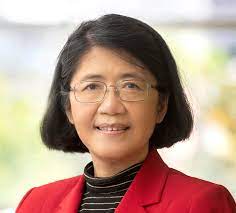
Dr. May Wang
Dr. Wang is a Wallace H. Coulter Distinguished Faculty Fellow and full professor in the Departments of Biomedical Eng. and Electrical and Computer Eng. at Georgia Institute of Technology and Emory University. She is the Director of Biomedical Big Data Initiative, a Kavli Fellow, a Georgia Cancer Coalition Distinguished Scholar, a Petit Institute Faculty Fellow, AIMBE and IAMBE Fellows, and a Board of Directors members in American Board of AI in Medicine. She is selected into Georgia Tech Provost's Emerging Leader's Program and elected into Executive Committee of IAMBE in 2021. Professor Wang received BEng from Tsinghua University China, and MS/PhD degrees from Georgia Institute of Technology. Her research is in Biomedical Big Data Analytics with a focus on Biomedical and Health Informatics (BHI) for predictive, personalized, and precision health (pHealth). Dr. Wang published over 250 peer-reviewed articles in referred journals and conference proceedings (~12,500 google scholar citations), and delivered over 240 invited and keynote lectures. She is a recipient of Georgia Tech Outstanding Faculty Mentor Award for Undergraduate Research and Emory University MilliPub Award (for a high-impact paper that is cited over 1,000 times). Dr. Wang was 2015-2016 IEEE Engineering in Medicine and Biology Society (EMBS) Distinguished Lecturer and an Emerging Area Editor for PNAS. She currently serves as the Senior Editor for IEEE Journal of Biomedical and Health Informatics, an Associate Editor for TBME and RBME, a panelist for NIH CDMA study section and NSF, Brain Canada, and multiple European countries. She co-organized multiple bioinformatics and health informatics conferences for IEEE EMBS, ACM, and Gordon Research Conferences, and co-chaired 2016 IEEE EMBS Annual Conference with 2,600+ attendees. During 2015-2019, she served as IEEE Big Data Initiative (BDI) Steering Committee member, Vice President of IEEE EMBS, and AIMBE Nomination Committee Chair. She was also Georgia Tech Biomedical Informatics Program Co-Director in Atlanta Clinical and Translational Science Institute (ACTSI) and Co-Director of Georgia-Tech Center of Bio-Imaging Mass Spectrometry before. Her research has been supported by NIH, NSF, CDC, Georgia Research Alliance, Georgia Cancer Coalition, Shriners' Hospitals for Children, Children's Health Care of Atlanta, Enduring Heart Foundation, Coulter Foundation, Microsoft Research, HP, UCB, and Amazon.


